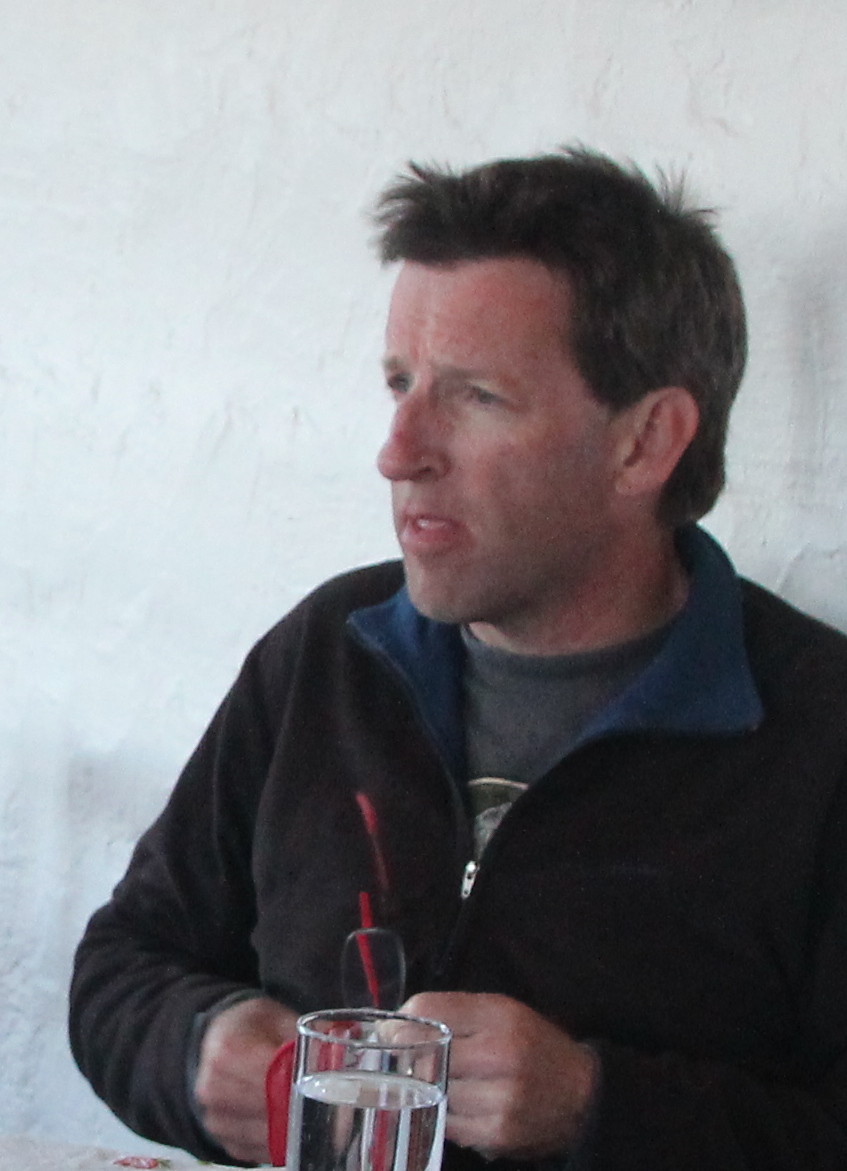![What to let in, and what to exclude (question mark) You decide. Photo by the author[1]](https://flagstaffletterfromhome.com/wp-content/uploads/2016/08/What-to-let-in-and-what-to-exclude-question-mark-You-decide.-Photo-by-the-author1-300x200.jpg) The red cabbages in the garden are fattening up nicely with the monsoon rains—knock on wood, right now!—which pleases me because as someone who grew up in a household of German background, I look forward to stewing them up with some apples and red wine and vinegar, and some cloves or a bay leaf depending upon mood, to create a nice big pot of what they call Rotkohl, a hearty dish for a fall evening, but also because I love the way they look, with the outer leaves cupping in protectively, almost maternally, around the growing head.
The red cabbages in the garden are fattening up nicely with the monsoon rains—knock on wood, right now!—which pleases me because as someone who grew up in a household of German background, I look forward to stewing them up with some apples and red wine and vinegar, and some cloves or a bay leaf depending upon mood, to create a nice big pot of what they call Rotkohl, a hearty dish for a fall evening, but also because I love the way they look, with the outer leaves cupping in protectively, almost maternally, around the growing head.
In common with kale they share the quality of shedding water, so that even right after a shower most of each leaf is dry, with maybe a large bead of water somewhere that has collected to it all the moisture from the surface. I’m sure the raincoat makers at Gore have looked at why it happens. But to me, during this particular season, it’s become more a sign of what we take in, or don’t.
I live on a street with a pretty good tilt to it, and during last week’s vigorous afternoon storm I couldn’t help but watch as the rain and then hail splashed hard on the wide pavement, puddling fast on the asphalt and on the cement sidewalk until it took its inevitable course down. The runoff from a couple of blocks above us built up in the gutters, running fast, a few inches deep, and on the far side of the street splashed hard against the base of an empty recycling container. The water mounded and grew and after a minute began pushing the bin downhill along with it—a funny sight because if you didn’t look quite closely enough you might think it was moving off of its own accord, wanting to see the world. It was headed for the Rio, or for the Little Colorado, or, if you thought about it broadly enough, the Gulf of California.
Fortunately, the downstream neighbors had their car parked by the curb so the bin didn’t get any farther than that. But it was a good reminder of the power of water as it hits the hard surfaces we’ve created for ourselves. Down in town sirens were going off and big pools of brown water were gathering themselves a foot deep in places they wouldn’t have in the absence of pavement: on Butler, on Milton, and in the usual places on the smaller neighborhood streets, causing headaches for rush-hour drivers.
Even with their rain-shedding leaves, my red cabbages aren’t impervious to water, of course—they just take it in with their roots, which now have plenty to work with in the soggy soil. But seeing my neighbors’ recycling bin carried off by a couple-of-minutes downpour coming down on a wide acreage of pavement made me wonder how pervious or impervious we all are—not to water, but to what we as humans are so uniquely poised to let in if we will: namely, information about the world from beyond our experience.
For the noise of the political season, and of the debates that divide us, exceeds the ear-thumping din of the hailstones and fat raindrops pounding our old roof, every day an object lesson in how millions of us have trained ourselves to carefully filter what we allow in. I mean really allow in, not just as points of information but as ideas for serious consideration. Thanks to a polarized (and polarizing) political system, to media that traffic in sensation and emotion, and to our own personalized technological ability to shape what comes to us—I guess the term they use for this in the social media world is “curate”—we are able to, yes, curate our experience of the world in a way that’s never been possible before. Meaning: we get to choose what we take in. We get to choose what we leave out.
But the trouble is that we are all doing this based on our own incomplete information and perspectives, running our belief systems further into incised channels, and as all those deepening channels gather in the form of an election or other work that we need to do collectively, it’s hard to avoid the impression that the erosive power we are all accumulating together is going to pile up somewhere downstream and do a whole lot of damage.
Maybe that is way too much to take from a few silly cabbage leaves. But I’ll consider this idea part of this summer’s harvest: if we’re frustrated with the way things are going—and who isn’t?—then surely it would be a good step to make a targeted effort to talk to someone outside our narrow channel of belief, someone with different ideas and priorities. And then to really listen, to make ourselves pervious to what we might otherwise shed. After all, when Martin Luther King Jr. gave his most famous speech and alluded to the power of water he wasn’t talking about separate-but-equal flows, but about one unified one: we’d see it, he said, on the day when “justice rolls down like water and righteousness like a mighty stream.”

